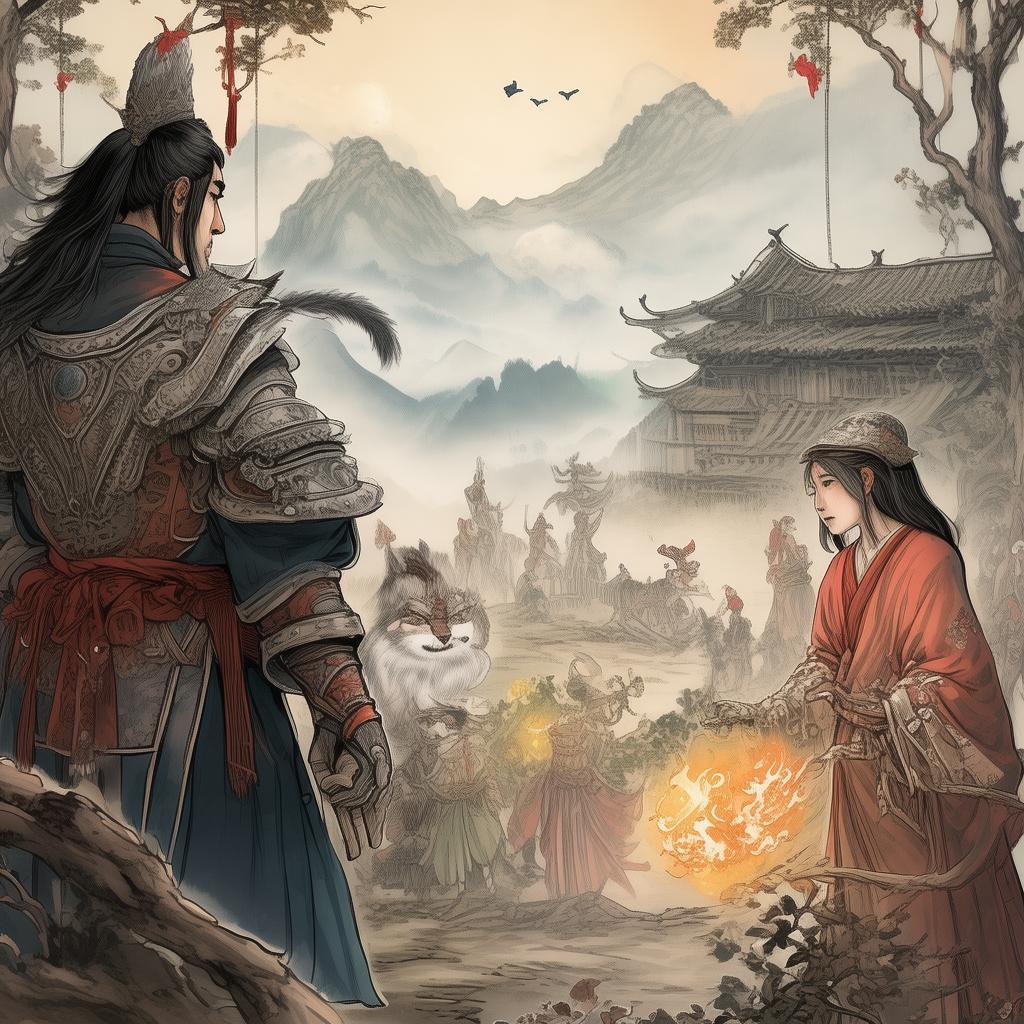The Resurgent Lute: A Dead Bard's Return to the Stage
In the heart of the ancient village of Eldergrove, where the cobblestone streets whispered tales of yore, there stood a grand theater, its marquee glowing with the promise of magic and mystery. It was here that the legend of the Dead Bard had taken root, a tale of a bard whose melodies could move mountains and whose words could pierce the heart. But as the years passed, the Dead Bard's legend faded, and the theater became a relic of the past, its lute gathering dust on the forgotten stage.
One fateful evening, as the village slumbered under the cloak of night, a faint, haunting melody began to echo through the empty halls of the theater. It was the sound of the Dead Bard's lute, resonating with a power that had been lost to time. The villagers awoke, hearts pounding with a mix of fear and wonder, for they knew the lute's song was a sign of the impossible—its owner, the Dead Bard, had returned to the stage.

The village elder, an old man with eyes that had seen many wonders, approached the theater with reverence. He knew the lute's return was no ordinary event; it was a sign that fate had something grand in store for Eldergrove. The elder's intuition was not wrong; for as the lute's melody grew louder, it brought with it a series of mysterious events that would change the lives of the villagers forever.
First came the whispers, carried on the wind like the voices of the dead. The villagers spoke of strange dreams, of a bard in tattered robes, his lute in hand, standing at the edge of their beds. The dreams were vivid, filled with cryptic messages and foreboding prophecies. The elder interpreted these dreams as omens, signs that the Dead Bard's return was not a mere trick of the wind but a herald of change.
Next, the villagers began to notice changes in their surroundings. The once barren fields bloomed with an abundance of crops, the streams ran clear and full, and the animals seemed to thrive. It was as if the Dead Bard's lute had brought with it a touch of magic, a spark of life that had been long forgotten.
But not all changes were welcome. The village's harmony was disrupted by a series of conflicts. Families that had been friends for generations found themselves at odds over trivial matters, and the once peaceful nights were now filled with the sound of arguments and fights. The elder, seeing the division, knew that the Dead Bard's message was not just one of prosperity but also of unity.
The climax of the story came when the village was threatened by a terrible drought. The fields withered, the streams dried up, and the animals began to starve. The villagers were desperate, their livelihoods at stake. It was then that the elder, understanding the true meaning of the Dead Bard's message, called for a village-wide assembly.
Standing before the crowd, the elder spoke of the Dead Bard's legend, of the power of unity and the importance of listening to the whispers of the past. He challenged the villagers to come together, to put aside their differences, and to work as one to save their village. The villagers, moved by the elder's words and the magic of the lute, heeded his call.
As the villagers worked together, the drought lifted, and the land began to flourish once more. The Dead Bard's lute, now silent, lay on the stage, a symbol of the village's newfound strength and unity. The legend of the Dead Bard was no longer just a tale of a bard who could move mountains; it was a story of hope, of the power of community, and of the enduring legacy of a man who had returned to the stage to remind the world of the magic that lay within each of us.
The village of Eldergrove was forever changed by the Dead Bard's return. The theater, once a relic of the past, became a place of celebration and remembrance. The villagers, no longer divided, worked together to build a future that was bright and full of promise. And the Dead Bard's lute, now a treasured artifact, remained on the stage, a silent guardian of the village's legacy, a reminder that the magic of the past could be the key to a brighter future.
✨ Original Statement ✨
All articles published on this website (including but not limited to text, images, videos, and other content) are original or authorized for reposting and are protected by relevant laws. Without the explicit written permission of this website, no individual or organization may copy, modify, repost, or use the content for commercial purposes.
If you need to quote or cooperate, please contact this site for authorization. We reserve the right to pursue legal responsibility for any unauthorized use.
Hereby declared.









